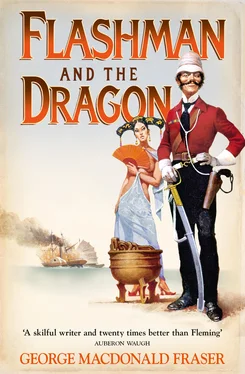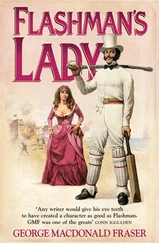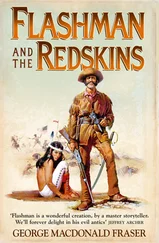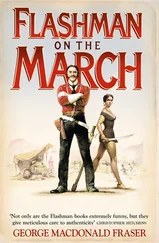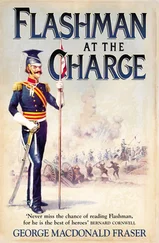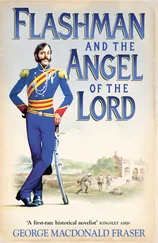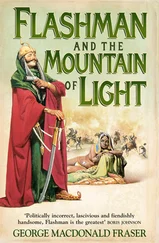George Fraser - Flashman and the Dragon
Здесь есть возможность читать онлайн «George Fraser - Flashman and the Dragon» — ознакомительный отрывок электронной книги совершенно бесплатно, а после прочтения отрывка купить полную версию. В некоторых случаях можно слушать аудио, скачать через торрент в формате fb2 и присутствует краткое содержание. Жанр: unrecognised, на английском языке. Описание произведения, (предисловие) а так же отзывы посетителей доступны на портале библиотеки ЛибКат.
- Название:Flashman and the Dragon
- Автор:
- Жанр:
- Год:неизвестен
- ISBN:нет данных
- Рейтинг книги:5 / 5. Голосов: 1
-
Избранное:Добавить в избранное
- Отзывы:
-
Ваша оценка:
- 100
- 1
- 2
- 3
- 4
- 5
Flashman and the Dragon: краткое содержание, описание и аннотация
Предлагаем к чтению аннотацию, описание, краткое содержание или предисловие (зависит от того, что написал сам автор книги «Flashman and the Dragon»). Если вы не нашли необходимую информацию о книге — напишите в комментариях, мы постараемся отыскать её.
Flashman and the Dragon — читать онлайн ознакомительный отрывок
Ниже представлен текст книги, разбитый по страницам. Система сохранения места последней прочитанной страницы, позволяет с удобством читать онлайн бесплатно книгу «Flashman and the Dragon», без необходимости каждый раз заново искать на чём Вы остановились. Поставьте закладку, и сможете в любой момент перейти на страницу, на которой закончили чтение.
Интервал:
Закладка:
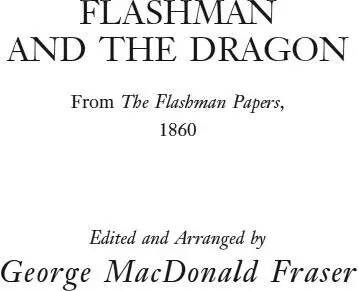

Copyright Contents Cover Title Page Copyright How Did I Get the Idea of Flashman ? Dedication Explanatory Note Map Chapter 1 Chapter 2 Chapter 3 Chapter 4 Chapter 5 Chapter 6 Chapter 7 Chapter 8 Chapter 9 Chapter 10 Chapter 11 Chapter 12 Chapter 13 Chapter 14 Chapter 15 Appendix I Appendix II Appendix III Footnotes Notes Glossary About the Author The FLASHMAN Papers: In chronological order The FLASHMAN Papers: In order of publication Also by George MacDonald Fraser About the Publisher
Harper
An imprint of HarperCollins Publishers
1 London Bridge Street
London SE1 9GF
www.harpercollins.co.uk
First published in Great Britain by Collins Harvill 1985
Copyright © George MacDonald Fraser 1985
How Did I Get the Idea of Flashman ? © The Beneficiaries of the Literary
Estate of George MacDonald Fraser 2015
Map © John Gilkes 2015
Cover layout design © HarperCollins Publishers Ltd 2015
Cover illustration © Gino D’Achille
George MacDonald Fraser asserts the moral right to be identified as the author of this work
A catalogue record for this book is available from the British Library
This novel is entirely a work of fiction. The names, characters and incidents portrayed in it, while at times based on historical events and figures, are the work of the author’s imagination.
All rights reserved under International and Pan-American Copyright Conventions. By payment of the required fees, you have been granted the non-exclusive, non-transferable right to access and read the text of this e-book on-screen. No part of this text may be reproduced, transmitted, down-loaded, decompiled, reverse engineered, or stored in or introduced into any information storage and retrieval system, in any form or by any means, whether electronic or mechanical, now known or hereinafter invented, without the express written permission of HarperCollins
Source ISBN: 9780007217212
Ebook Edition © 2015 ISBN: 9780007325702
Version: 2015-07-23
The following piece was found in the author’s study in 2013 by the Estate of George MacDonald Fraser.
How did I Get the Idea of Flashman? Contents Cover Title Page Copyright How Did I Get the Idea of Flashman ? Dedication Explanatory Note Map Chapter 1 Chapter 2 Chapter 3 Chapter 4 Chapter 5 Chapter 6 Chapter 7 Chapter 8 Chapter 9 Chapter 10 Chapter 11 Chapter 12 Chapter 13 Chapter 14 Chapter 15 Appendix I Appendix II Appendix III Footnotes Notes Glossary About the Author The FLASHMAN Papers: In chronological order The FLASHMAN Papers: In order of publication Also by George MacDonald Fraser About the Publisher
‘How did you get the idea of Flashman ?’ and ‘When are we going to get his U.S. Civil War memoirs?’ are questions which I have ducked more often than I can count. To the second, my invariable response is ‘Oh, one of these days’. Followed, when the inquirer is an impatient American, by the gentle reminder that to an old British soldier like Flashman the unpleasantness between the States is not quite the most important event of the nineteenth century, but rather a sideshow compared to the Mutiny or Crimea. Before they can get indignant I add hastily that his Civil War itinerary is already mapped out; this is the only way of preventing them from telling me what it ought to be.
To the question, how did I get the idea, I simply reply that I don’t know. Who ever knows? Anthony Hope conceived The Prisoner of Zenda on a walk from Westminster to the Temple, but I doubt if he could have said, after the calendar month it took him to write the book, what triggered the idea. In my case, Flashman came thundering out of the mists of forty years living and dreaming, and while I can list the ingredients that went to his making, heaven only knows how and when they combined.
One thing is sure: the Flashman Papers would never have been written if my fellow clansman Hugh Fraser, Lord Allander, had confirmed me as editor of the Glasgow Herald in 1966. But he didn’t, the canny little bandit, and I won’t say he was wrong. I wouldn’t have lasted in the job, for I’d been trained in a journalistic school where editors were gods, and in three months as acting chief my attitude to management, front office, and directors had been that of a seigneur to his serfs – I had even put Fraser’s entry to the House of Lords on an inside page, assuring him that it was not for the Herald , his own paper, to flaunt his elevation, and that a two-column picture of him was quite big enough. How cavalier can you get?
And doubtless I had other editorial shortcomings. In any event, faced with twenty years as deputy editor (which means doing all the work without getting to the big dinners), I promised my wife I would ‘write us out of it’. In a few weeks of thrashing the typewriter at the kitchen table in the small hours, Flashman was half-finished, and likely to stay that way, for I fell down a waterfall, broke my arm, and lost interest – until my wife asked to read what I had written. Her reaction galvanised me into finishing it, one draft, no revisions, and for the next two years it rebounded from publisher after publisher, British and American.
I can’t blame them: the purported memoir of an unregenerate blackguard, bully, and coward resurrected from a Victorian school story is a pretty eccentric subject. By 1968 I was ready to call it a day, but thanks to my wife’s insistence and George Greenfield’s matchless knowledge of the publishing scene, it found a home at last with Herbert Jenkins, the manuscript looking, to quote Christopher MacLehose, as though it had been round the world twice. It dam’ nearly had.
They published it as it stood, with (to me) bewildering results. It wasn’t a bestseller in the blockbuster sense, but the reviewers were enthusiastic, foreign rights (starting with Finland) were sold, and when it appeared in the U.S.A. one-third of forty-odd critics accepted it as a genuine historical memoir, to the undisguised glee of the New York Times , which wickedly assembled their reviews. ‘The most important discovery since the Boswell Papers’ is the one that haunts me still, for if I was human enough to feel my lower ribs parting under the strain, I was appalled, sort of.
You see, while I had written a straightforward introduction describing the ‘discovery’ of the ‘Papers’ in a saleroom in Ashby-de-la-Zouche ( that ought to have warned them), and larded it with editorial ‘foot-notes’, there had been no intent to deceive; for one thing, while I’d done my best to write, first-person, in Victorian style, I’d never imagined that it would fool anybody. Nor did Herbert Jenkins. And fifty British critics had recognised it as a conceit. (The only one who was half-doubtful was my old chief sub on the Herald ; called on to review it for another paper, he demanded of the Herald ’s literary editor: ‘This book o’ Geordie’s isnae true, is it?’ and on being assured that it wasn’t, exclaimed: ‘The conniving bastard!’, which I still regard as a high compliment.)
With the exception of one left-wing journal which hailed it as a scathing attack on British imperialism, the press and public took Flashman , quite rightly, at face value, as an adventure story dressed up as the memoirs of an unrepentant old cad who, despite his cowardice, depravity and deceit, had managed to emerge from fearful ordeals and perils an acclaimed hero, his only redeeming qualities being his humour and shameless honesty as a memorialist. I was gratified, if slightly puzzled to learn that the great American publisher, Alfred Knopf, had said of the book: ‘I haven’t heard this voice in fifty years’, and that the Commissioner of Metropolitan Police was recommending it to his subordinates. My interest increased as I wrote more Flashman books, and noted the reactions.
Читать дальшеИнтервал:
Закладка:
Похожие книги на «Flashman and the Dragon»
Представляем Вашему вниманию похожие книги на «Flashman and the Dragon» списком для выбора. Мы отобрали схожую по названию и смыслу литературу в надежде предоставить читателям больше вариантов отыскать новые, интересные, ещё непрочитанные произведения.
Обсуждение, отзывы о книге «Flashman and the Dragon» и просто собственные мнения читателей. Оставьте ваши комментарии, напишите, что Вы думаете о произведении, его смысле или главных героях. Укажите что конкретно понравилось, а что нет, и почему Вы так считаете.
